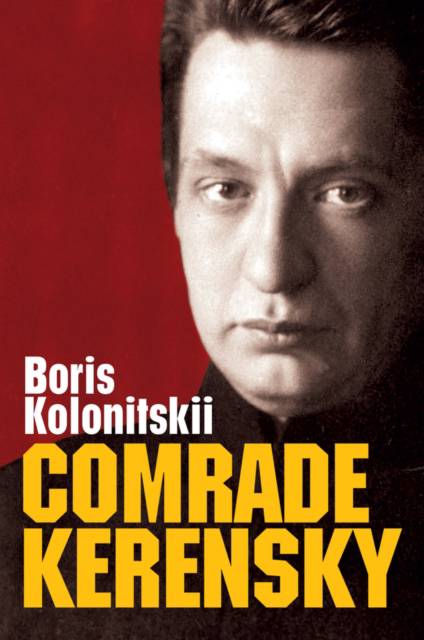
- Retrait gratuit dans votre magasin Club
- 7.000.000 titres dans notre catalogue
- Payer en toute sécurité
- Toujours un magasin près de chez vous
- Retrait gratuit dans votre magasin Club
- 7.000.0000 titres dans notre catalogue
- Payer en toute sécurité
- Toujours un magasin près de chez vous
Description
As one of the heroes of the 1917 February Revolution and then Prime Minister at the head of the Provisional Government, Alexander Kerensky was passionately, even fanatically, lauded as a leader during his brief political reign. Symbolic artefacts - sculptures, badges and medals - featuring his likeness abounded. Streets were renamed after him, his speeches were quoted on gravestones and literary odes dedicated to him proliferated in the major press. But, by October, Kerensky had been unceremoniously dethroned in the Bolshevik takeover and had fled to Paris and then to the US, where he would remain exiled and removed from his former glory until his death. The breakneck trajectory of his rise and fall and the intensity of his popularity were not merely a symptom of the chaos of those times but offer a window onto a much broader historical phenomenon which did not just begin with Lenin and Stalin - the cult of the leader.
In this major new study of the Russian leadership cult, Boris Kolonitskii uses the figure of Kerensky to show how popular engagement with the idea of the leader became a key component of a cultural re-imagining of the political landscape after the fall of the monarchy. A parallel revolution was taking place on the level of creating a resonant political vocabulary where one had not existed before, and it was in the shared exercise of bestowing and dissolving authority that a politicised way of seeing began to emerge. Kolonitskii plots the unfurling of this symbolic revolution by examining the tapestry of images woven by Kerensky and those around him, and, in so doing, exposes his vital role in the development of nascent Soviet political culture.
This highly original portrait of a revolutionary sheds new light on the cult of Kerensky that developed around this charismatic leader during the months following the overthrow of the tsar. It will be of value to students and scholars of Russian history and to those interested in political culture.
In this major new study of the Russian leadership cult, Boris Kolonitskii uses the figure of Kerensky to show how popular engagement with the idea of the leader became a key component of a cultural re-imagining of the political landscape after the fall of the monarchy. A parallel revolution was taking place on the level of creating a resonant political vocabulary where one had not existed before, and it was in the shared exercise of bestowing and dissolving authority that a politicised way of seeing began to emerge. Kolonitskii plots the unfurling of this symbolic revolution by examining the tapestry of images woven by Kerensky and those around him, and, in so doing, exposes his vital role in the development of nascent Soviet political culture.
This highly original portrait of a revolutionary sheds new light on the cult of Kerensky that developed around this charismatic leader during the months following the overthrow of the tsar. It will be of value to students and scholars of Russian history and to those interested in political culture.
Spécifications
Parties prenantes
- Auteur(s) :
- Editeur:
Contenu
- Nombre de pages :
- 450
- Langue:
- Anglais
- Collection :
Caractéristiques
- EAN:
- 9781509533640
- Date de parution :
- 07-12-20
- Format:
- Livre relié
- Format numérique:
- Genaaid
- Dimensions :
- 160 mm x 231 mm
- Poids :
- 793 g

Les avis
Nous publions uniquement les avis qui respectent les conditions requises. Consultez nos conditions pour les avis.






